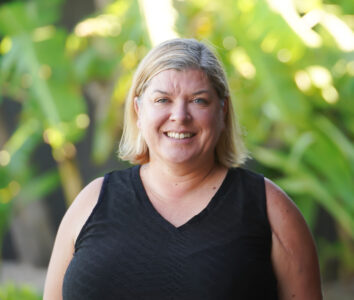Healthwise Maui: Experts answer your health-related questions
Editor’s note: Physicians, providers, and administrative staff who practice at Maui Health hospitals and clinics answer questions from the public in “Healthwise Maui,” which appears in The Maui News on Thursdays. Maui Health operates Maui Memorial Medical Center, Maui Memorial Medical Center Outpatient Clinic, Kula Hospital & Clinic and Lana’i Community Hospital and accepts all patients. To submit a question, go to the website at mauihealth.org/healthwise.
Q: If my joints ache after I work out, does that mean I have arthritis?
Dr. Jonathan Eno, Orthopedic Sports Medicine Surgeon, Pacific Permanente Group: Not necessarily. It’s normal to feel a little sore after exercise, especially if you’re starting something new or pushing yourself more than usual. That kind of soreness usually goes away after one or two days.
But if you’re feeling sharp, lingering joint pain, or your joints are swollen, stiff, or feel hot, it could be a sign of something more, like osteoarthritis — the most common type of arthritis.
With osteoarthritis — also known as OA — the cushioning in your joints (cartilage) slowly wears down over time. This can result in a reduced range of motion, as well as common symptoms like stiffness and swelling.
It may seem counterintuitive, but staying active is a good way to manage joint pain and slow down arthritis. The key is to find exercises that are gentle on your joints such as swimming, biking, walking on flat ground, or yoga.
Ease into exercise with short sessions a few days a week, gradually increasing your frequency and intensity. Listen to your body. Always warm up before you move and cool down after. And invest in comfortable, supportive shoes that fit you properly.
If you’re still having sharp or stabbing joint pain, or pain that doesn’t go away with rest, talk to a doctor. Getting a clear diagnosis early on can help you stay active and avoid further joint damage.
At Maui Health, we’ve got a team of specialists, including board-certified surgeons and clinical staff, ready to help you move better and feel better. Call 808-442-5951 or visit mauihealth.org/ortho to learn more or make an appointment.
Q: Does palliative care mean I’m giving up on curing my disease?
Dr. Chad Farmer, Maui Memorial Medical Center Palliative Care Program Director and Hospice Maui Medical Director: No. Choosing palliative care does not mean giving up. In fact, it’s just the opposite; it means you’re choosing to live as well as possible, often while undergoing other treatments. Palliative care focuses on relieving symptoms and improving your quality of life, and it can be provided at any stage of a serious illness, including alongside treatment aimed at curing your disease.
Palliative care is recommended for people living with a wide range of serious conditions, like cancer, heart disease, COPD, Parkinson’s, Alzheimer’s, and more. You don’t have to wait until the end of life to get help managing symptoms like pain, fatigue, nausea, and insomnia. In fact, you can start palliative care on day one of your treatment. Why not start feeling better right away?
Palliative care often involves pain management, which could include medication, physical therapy, or medical procedures to relieve pain. Depending on your needs, it could also include services like occupational therapy or physical therapy to improve your functioning or mobility; respiratory therapy to help you breathe easier; and mental health support to address concerns like anxiety, depression, and grief. Palliative care can even include working with a social worker, chaplain, or care coordinator to help you work through financial issues, spiritual concerns, or navigate appointments while you undergo treatment.
It’s important to understand that palliative care is different from hospice care. While hospice is for people with a terminal illness who are at the end of their life, palliative care can be given at any time.
Ultimately, palliative care is about helping you live as fully and comfortably as possible. Studies show that people who receive palliative care often experience less pain, better quality of life and greater longevity.
Talk with your doctor about whether you could benefit from palliative care. If you or a loved one is a patient at Maui Memorial Medical Center, ask your nurse about the Palliative Care Program and how it may assist you and your ‘ohana in your healing journey.





